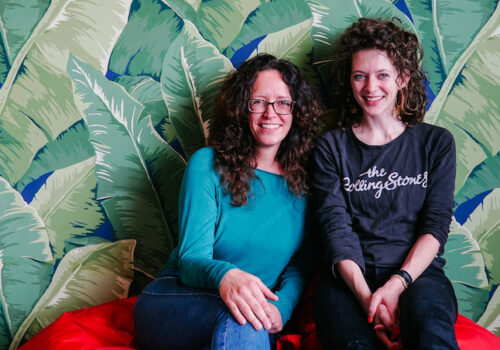A series of interviews with Springest’s product development team
Like all tech companies, at Springest we love our developers. We just can’t get enough of them. If we were a corporate, we would give them a parking space right next to our office entrance. That’s how much we love them.
We can’t have enough of them either – we are constantly on the lookout for new hires to enrich our team. We look for a certain set of skills but we also look for a certain mindset. And this mindset can be hard to pinpoint. What is it that makes our developers choose Springest? And what is it that makes Springest choose them?
Buckle up. In this series of interviews I will try and answer those questions .
Jordy van Gelder (32)
Rotterdam based, dj by night.
Tell me how you got here?
Before joining Springest I worked 7 years as a developer for an internet agency, building websites for clients. My first real job. I learned a lot, but over the years I grew weary of the consultancy part. There is always a conflict between the client’s wishes, the budget and what you believe is the right solution. In 99% of the cases, the client and the budget would be leading and I would feel as if I were merely executing someone else’s plan – instead of working together and delivering a team product. So I took 6 weeks off and went motorbiking in Vietnam.
Don’t be ridiculous – developers don’t go motorbiking in Vietnam.
Yes they do. I met a group of guys there, one of them was Joost. We stayed in touch. When I returned home I realised after a couple of weeks that nothing had changed: I was stuck in the same rut. I talked about it to Joost and he told me about Springest and that they were always looking out for developers. So I got in touch.
And from the very first moment Springest felt like home?
Haha, those are your words… But I must say I really liked the vibe from the moment I stepped into the office. We simply brainstormed about work and day to day life – I felt completely at ease. If I were in it for the money, I would have made a different choice. But then it’s straight back to consultancy work and office politics. I much prefer team work and that is what I find here. The culture at Springest is almost as important a reason for me to stay here, as the actual work that I do.
This team must be quite something then…
It’s a social group that easily adopts newcomers. They know it can take a while before you are up to speed, so they will give you time to grow. The vibe is critical, yet positive and it is easy to propose new things. There is no question of creeping bureaucracy. What I like is that I see people owning their work a lot more than I did in my former work. People have an entrepreneurial quality here at Springest, and they will always take responsibility. That means they don’t go for short term fixes. Instead, they might take a little longer to ensure that what is built will be valuable in the long term too.
That is one of the things I was really looking for. Working towards solid solutions as a team.
And what did Springest find in you? Actually – what are you? Front-end, back-end?
Ah! We’re getting technical are we? I am hybrid – so I can do both. Full stack, that is what they call it. But it’s a bit weird to say that about myself. I think that my strong points are that I am open to change and that I see opportunities everywhere.
Aren’t all developers open for change?
Not at all. Some are more defensive. They will build more carefully, whereas I will say: “let’s do it, we’ll see where we end”. You need both kinds because they keep each other sharp. The defensive developer will draw my attention to important points to consider, and I will push them to move out of their comfort zone and to not just see problems.
And what are some areas where you can still grow as a developer?
Part of being more of an offensive developer means I tend to rush projects. I worked on one recently where we had to do quite some fixes that had not been necessary if I had taken a little more time in the preparation phase. Another point I need to work on is communication.
Obviously.
Yes it’s a cliché, and one that is certainly not true for everyone. But it is for me. I can be quick to execute. But if you know how to communicate properly to your team, you will be of a lot more value to them than you are if you just start fixing things solo. In my opinion, good communication is what makes the difference between a good developer and an excellent developer.
Last question: what do you admire in your direct colleagues?
I admire Iris – she decided to take a course on developing relatively late and she liked it, so she continued. She started at Springest as a junior and if you see her level now… she made some bizarre progress. It’s cool to see that you can go very far just by doing it.
In Mark I admire the way he can sink his teeth into an issue and never let go until he solved it. He’s got this numbers-based, data-driven approach that makes his opinions very valuable. Whatever he says: you’ll trust him because you know he’s thought about it carefully.
I still don’t really understand what you do.
You didn’t really ask. Next time, just ask more about the technical aspects and processes of our work.
Up next > Things get technical with Mark.
Would you like to join our team? Check our vacancies or send an open application on join.springest.com. Follow our stories on Medium to get to know us.


